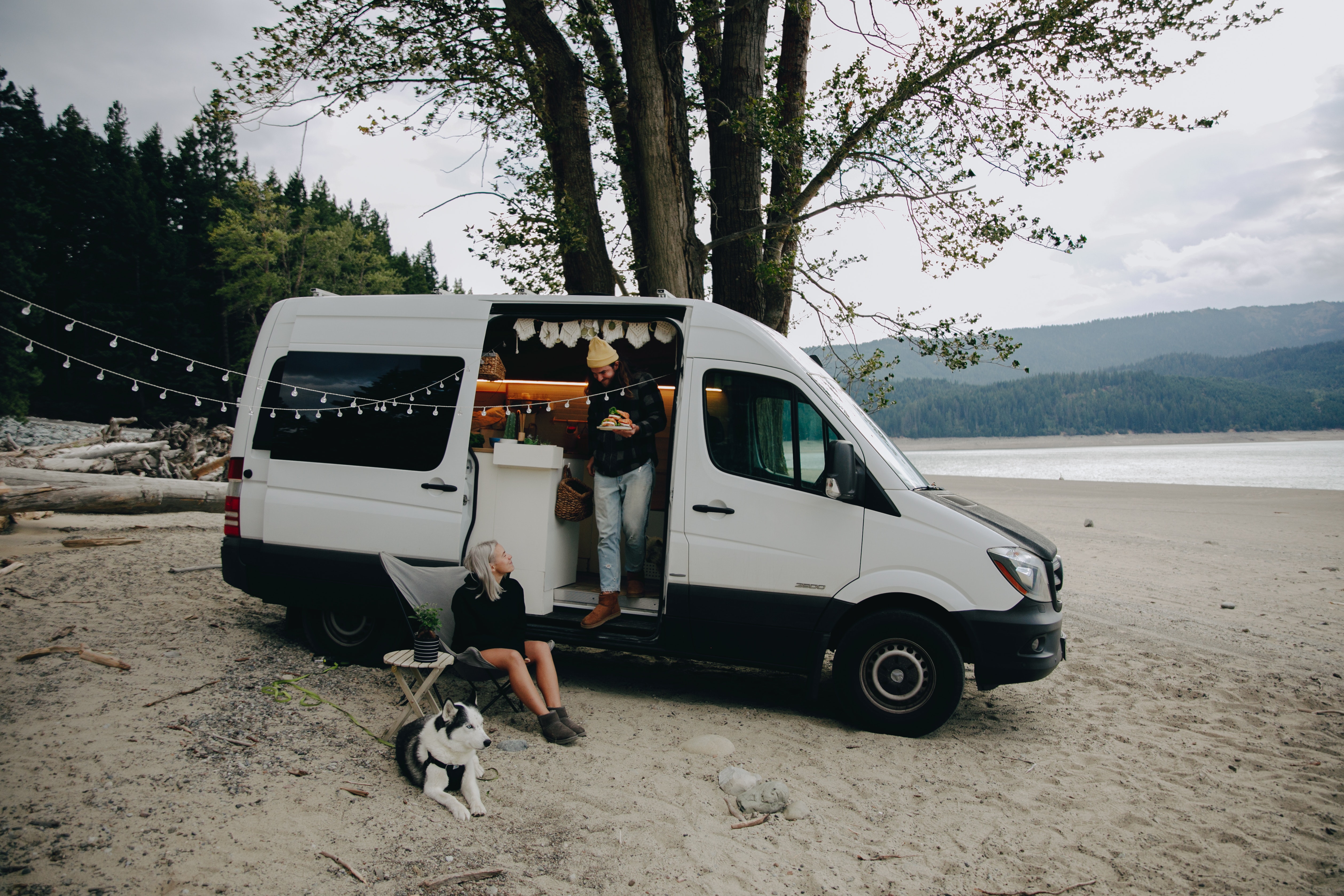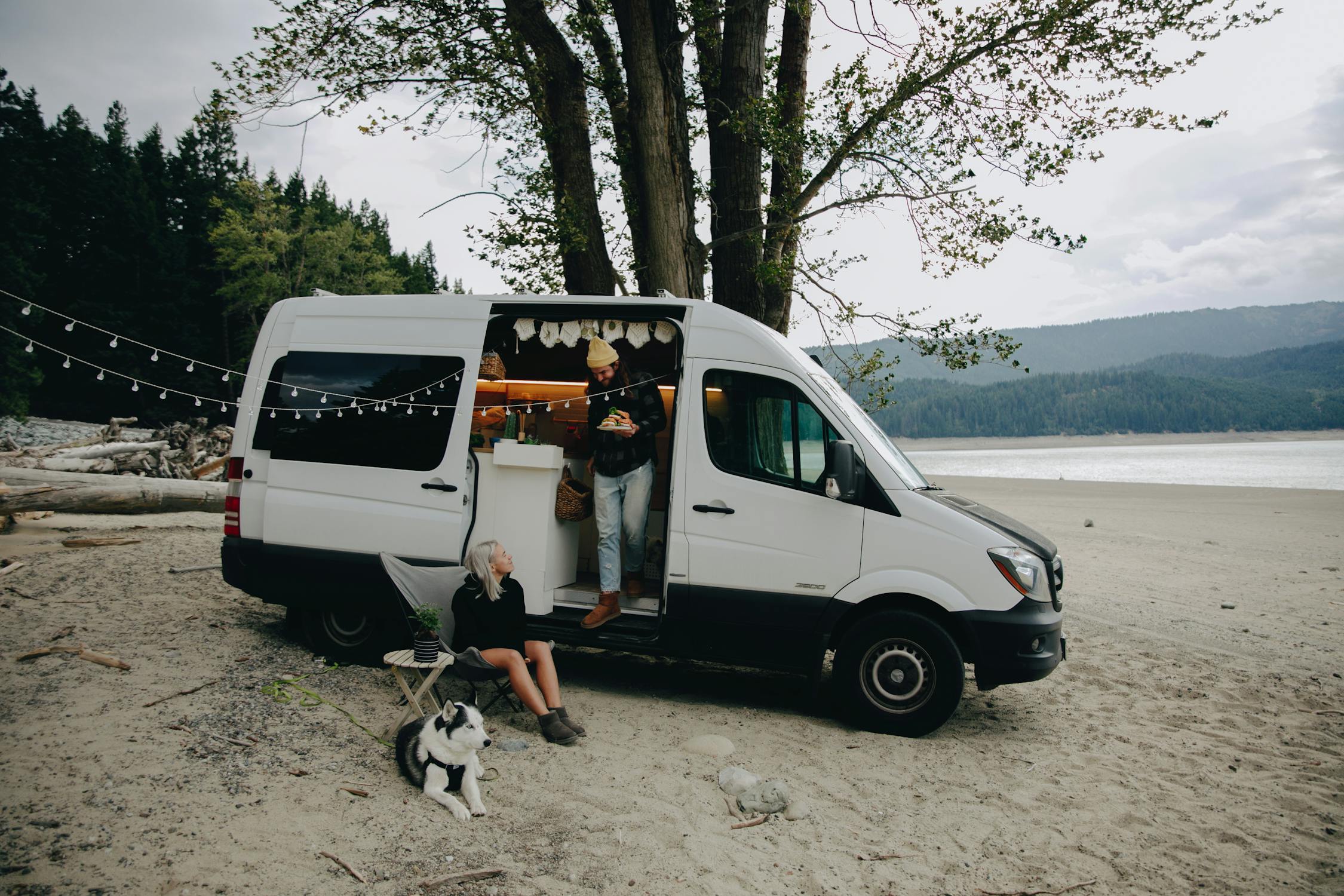#Is RV Living Right for You? 7 Things You Should Consider

Table of Contents
Is RV Living Right for You? 7 Things You Should Consider
Living full-time in an RV is a mammoth proposition laden with unique experiences. It is a chance to travel to many intriguing places and adopt a simplistic lifestyle. However, it has many elements. Here are seven factors to consider before living full-time in your RV.

1. Choose the RV You Want
Decide the type of RV that will suit your needs based on where and how you plan to use it. Determining the amount of space you need is crucial. There are many classes of RVs you can choose from. Some trailers require another vehicle to pull them, while others are all-in-one motor homes. Though you may get by with a small pop-up trailer for short trips, it is not ideal for long-term purposes.
Instead, a motorhome can be an excellent option to fit all necessary items. From the smallest to the largest, the most common types are class B, Class C, and Class A. With bigger class A motorized units, you may also haul a smaller vehicle behind. So, check out each type of RV to determine which one will suit you.
2. Do Your Research and Have Plans
Full-time traveling requires a lot of planning. It would help if you had a general idea of your destination, where you’ll be staying, and the duration of your stay. Besides, some of the most prominent campgrounds are often booked out months in advance, so you need to make sure you don’t miss your opportunity at the campgrounds.
Creating a flexible itinerary will enable you to budget for your trip, give you a sense of time and location, and enable you to share it with your loved ones in advance.
3. Downsize
Downsizing is a crucial part of RV living because it requires you to live in a space as small as the size of your bedroom. So, consider the things you need and those you won’t need. Downsizing will enable you to set priorities, keep essential items, and eliminate anything you won’t use. For instance, do you need eight sweaters or four pairs of boots? Instead, bring a pressure cooker to prepare food quickly and a comfortable RV mattress to sleep on. Thus, only keep what you need.
4. Consider Your Finances
Living in an RV full-time requires you to be accountable for your finances. Constant traveling may require you to find jobs that are not location-based to support your lifestyle. In this digital era, you can find online work that you can do without stepping into a traditional office. You can also generate passive income through investments. Besides, you can do temporary jobs, such as working on the campgrounds of the RV parks you stay in. Online jobs will enable you to work anywhere you go as long as you have a strong and reliable internet connection.
5. Get Insurance and Domicile
A mobile lifestyle is not suitable for everyone, and since you don’t have a permanent address while traveling, you’ll need a domicile. There are many sets of rules and regulations regarding licenses, voter registration, vehicle inspections, bank accounts, taxes, etc., and your home state may not support nomadic living.
However, some US states allow full-time RVers to claim residency without renting or owning property, and Texas, Florida, and South Dakota are the most popular. Besides a domicile, you’ll also need insurance. You will need a policy that offers you all the coverage you need, such as replacement coverage for your belongings, roadside help, and liability protection on and off the road.
6. Check Out the RV Lifestyle
Whether you are a seasoned veteran or a newbie, taking a course from the local RV School is beneficial. In these classes, you will learn many things, such as driving and turning an RV and how particular features work. Another benefit of attending these courses is that many insurance firms will give you a discount if you show them your certificate of completion. Also, this education will help make your travels safe and enjoyable.
7. Prepare for the Unexpected
If you are mobile all year round, things can run off course. It might be a pesky RV repair, severe weather, or a flat tire. Whatever it may be, always prepare for emergencies while on the road.
So, here are a few recommendations:
- Develop an emergency plan
- Have an RV repair fund for unexpected repairs
- Always bring a spare tire in case you get a flat tire.
Have a backup plan in case of a medical emergency without cell service, and ensure you are always prepared for severe weather and storms.
Closing Remark
RV living gives you flexibility, freedom, and access to an incredible community of RVers. So as you take the above considerations, have a positive attitude and readiness to learn, and your life on the road will be easy.
by Tracie Johnson
Related article : Taking Your Home Off-Grid
If you liked the article, do not forget to share it with your friends. Follow us on Google News too, click on the star and choose us from your favorites.
For forums sites go to Forum.BuradaBiliyorum.Com
If you want to read more Like this articles, you can visit our Trip & Travel category.



